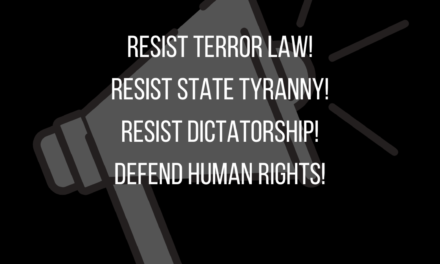ON 20 SEPTEMBER 2011 in New York, President Benigno S. Aquino III will deliver his keynote remarks at the Open Government Partnership (OGP) conference titled “The Power of Open: A Global Discussion”. The conference brings together governments, civil society, industry leaders, academics and media, with panels discussing the role of openness in improving government responsiveness and accountability, fighting corruption, and creating efficiencies, innovation and growth.
Later in the day, he will join high-level representatives of seven other countries (US, Brazil, Indonesia, Mexico, Norway, South Africa, and UK) that along with the Philippines comprise the government members of the OGP steering committee. They will officially launch the OGP by signing a declaration of principles, and by submitting their respective action plans for greater openness. They will also welcome a new group of countries into the effort, which as of the latest update count 20 more countries.
The OGP is a multilateral initiative led by the US that aims to secure concrete commitments from governments to scale up their current open government practices and norms to promote transparency, empower citizens, and fight corruption.
In his remarks at the conference, and in his interaction with world leaders, President Aquino will score political points on the world stage when he renders a rosy picture of the transparency, accountability, and participation initiatives under his administration.
But at the home front, we do not find credible basis for President Aquino to beat his breast as a supposed exemplar of transparency and open government in the world.
More than 14 months into his term, President Aquino has not mustered the political will to honor his campaign pact with the people` to push for the passage of the Freedom of Information act, the legislation the country needs to give the substantive and procedural flesh to the people’s constitutional right to information.
Instead, the promise of support has since turned into ever-mutating Presidential concerns over the FOI bill. After months of work by a Malacañang study group on the FOI bill, we have not seen any appreciable advance in the President’s position.
The lack of political will on the part of President Aquino to push for the passage of the FOI law is mirrored in the lack of credible commitment in the action plan for OGP prepared by Department of Budget and Management Secretary Florencio B. Abad for President Aquino’s approval. The Plan speaks of the FOI in one and only one paragraph:
“Pushing for Freedom of Information. The government will strive for the passage of a Freedom of Information Act within the current presidency, in consultation with CSOs. Pending this, it will develop and issue an executive-wide policy to improve access to information – including requirements for accurate, timely and understandable summary disclosures by government departments through their websites – within 360 days.”
We do not find comfort in the draft plan’s statement that President Aquino’s administration will “strive for the passage of a Freedom of Information Act within the current presidency”. On the contrary, it has been his statements of concern and refusal to endorse the passage of the FOI law that has been the main reason why it is now languishing in the House of Representatives, and moving at a snail’s pace in the Senate.
Neither do we find comfort in the draft’s promise of an executive-wide policy to improve access to information. It will be limited in coverage and application only to the executive agencies, thereby exempting the judiciary and the legislature, as well as independent constitutional bodies. It will not settle strategic policy gaps like exceptions and penalties for denial of access to information requests, and other matters that only the legislature may resolve. It could be revised or reversed at the whim and caprice of succeeding Presidents, if not the incumbent President.
We did consider such executive order to be a good interim measure at the start of President Aquino’s term, under the premise that he would categorically and unambiguously support the immediate passage of the FOI law. But at this point where we have been endlessly running after his elusive concerns, we see the said executive-wide policy as only justifying the further delay in the passage of the FOI law.
We therefore see the draft Philippine Action Plan’s offer to have an executive order – with a feeble assurance that the government will see after the passage of an FOI Act before President Aquino bows out of power in 2016 – as an opportunist move to legitimize President Aquino’s low transparency comfort zone, and his ignoring of the long standing people’s clamor for an FOI law.
In truth, it is within President Aquino’s power, in fact, it is his constitutional duty, to decisively assist rather than hinder the immediate passage of the FOI law. The OGP process provides the President another opportunity (after missing out on FOI in his inaugural address, two state of the nation addresses, and two Legislative-Executive Development Advisory Council Meetings) to show political will.
The Philippine Action Plan for OGP needs to express full, firm, and explicit commitment to the immediate passage of the FOI law in the present Congress. In practical terms, this will require the President to provide a definite list of his concerns, and for the executive to draw up its proposed amendments that seek to address the President’s concerns and to present them to Congress within the remaining months of 2011 for wide stakeholders consultation and legislative action.
Failing in this, we call a spade a spade: double-talk is the Aquino government’s FOI policy.
For stories related to press statement:
Palace disputes claim Aquino lacks political will on FOI bill
Civil society groups iffy on Aquino’s bid for good governance








